Agora is professional reading journal for History teachers. Each issue provides perspectives on a particular theme, from curriculum-focused content to pedagogical practice, along with teaching strategies, classroom activities and educational resources addressing the broader History curriculum.
Reflection
Editorial
Teaching Indigenous Histories through Indigenous Ways of Knowing and Being • Teaching Indigenous histories requires an understanding that time and place are not linear in Aboriginal cultures, but are connected through changes in relationships.
Critical Evaluation of Who Edits Wikipedia Entries, and Why • The evolution of a Wikipedia page about the Egyptian protests in 2011 provides a fascinating example of the need for critical thinking about knowledge produced in the digital age.
Critical Thinking about Colonial News Reports of Attacks by Indigenous Tasmanians • Reports that Indigenous attacks on Tasmanian settlers were led by rogue ‘blacktracker’ Musquito provide useful material for students to evaluate the evidence and claims presented in original sources.
Teaching Intercultural Capability Starts with a Diverse History Curriculum • Teaching the history of cultures from every continent can be achieved over several years of schooling in which content is carefully sequenced and taught in a structured and cumulative way.
Integrating Intercultural Capabilities in the History Classroom • Engagement with different cultures, curriculum design, teaching strategies and assessment methods can all be employed to incorporate intercultural capabilities within the History curriculum.
Making Space for First Nations Peoples in Intercultural Understandings • The intercultural capabilities must begin with cross-curriculum priority learning about Aboriginal Torres Strait Islander histories and cultures.
How to Foster Respectful Discussions when People Disagree on an Issue • Building students’ social and emotional capacity can create communities of learners who work cooperatively with each other and participate in reasoned and respectful discussion.
Teaching War Histories to Students with Personal Experiences of Warfare • Victoria’s classrooms have a high proportion of refugee students for whom the history of warfare is confronting, but there are ways teachers can approach these topics with sensitivity.
The Capabilities Gained from Studying History Will Get You a Good Job, Studying STEM Might Not • History studies develop capabilities that employers in a range of sectors value.
Approaches for Activating the Ethical Understanding Capability • History provides case studies that navigate complex ethical scenarios in a way that no other learning area can. Here are some approaches to incorporating the curriculum’s ethical capability.
Teaching Ethical Capability through History • By critically exploring the traits, actions and motivations of people in the past, History teachers are well-placed to develop students’ ethical thinking and decision-making.
Pharaoh: Creative and Critical Thinking at the NGV • Historical objects on display in the National Gallery of Victoria’s upcoming exhibition Pharaohoffer students the opportunity to extend their critical and creative thinking skills through object-based learning.
The Story Box of Life: Sharing Identities through Objects • Objects demonstrate a unique ability to inspire storytelling, open conversations, grow connections, and develop observation, analysis and interpretation skills while nurturing intercultural empathy.
Why Did Colonial Art Make Australia Look So English? • The Anglicisation of early settler art reflects intercultural misunderstandings in the first 25 years of contact.
The Power of Socially Shared Regulation of Learning • Socratic Circles are an...
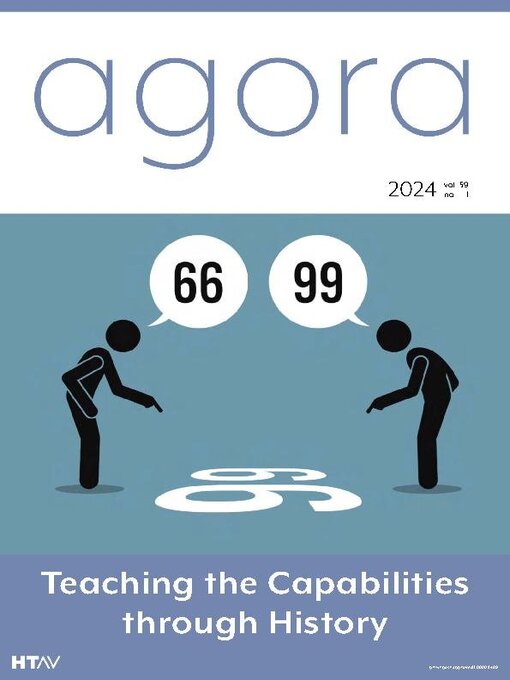
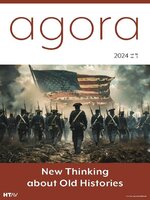 Vol 59 No 3 2024
Vol 59 No 3 2024
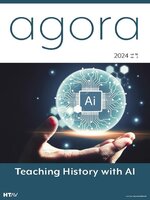 Vol 59 No 2 2024
Vol 59 No 2 2024
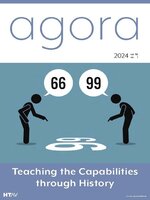 Vol 59 No 1 2024
Vol 59 No 1 2024
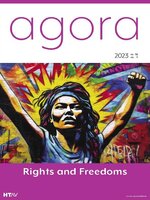 Vol. 58 no. 3 2023
Vol. 58 no. 3 2023
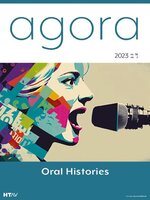 Vol. 58 no. 2 2023
Vol. 58 no. 2 2023
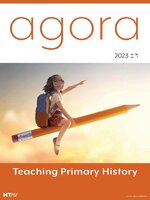 Vol. 58 no. 1 2023
Vol. 58 no. 1 2023
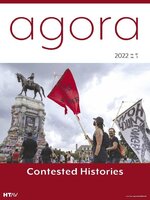 Vol. 57 no. 3 2022
Vol. 57 no. 3 2022
 Vol. 57 no. 2 2022
Vol. 57 no. 2 2022
 Vol. 57 no. 1 2022
Vol. 57 no. 1 2022
 Vol. 56 no. 3 2021
Vol. 56 no. 3 2021
 Vol. 56 no. 2 2021
Vol. 56 no. 2 2021
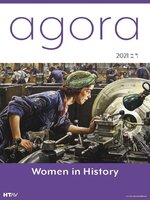 Vol. 56 no. 1 2021
Vol. 56 no. 1 2021
